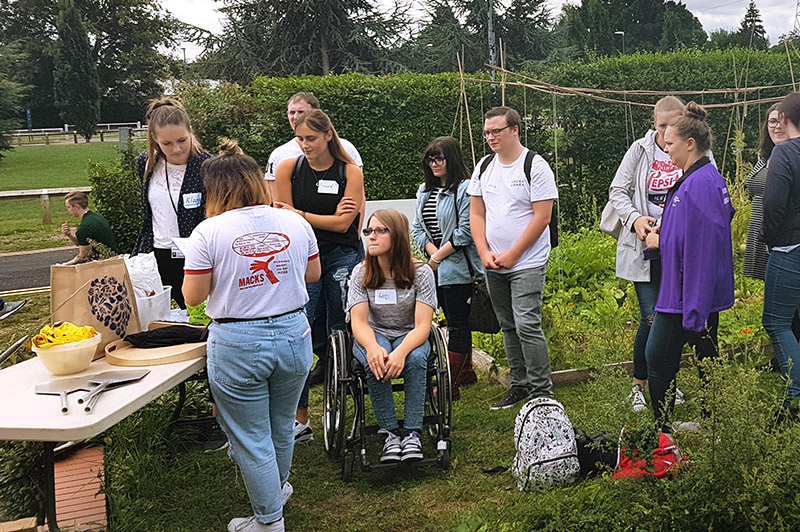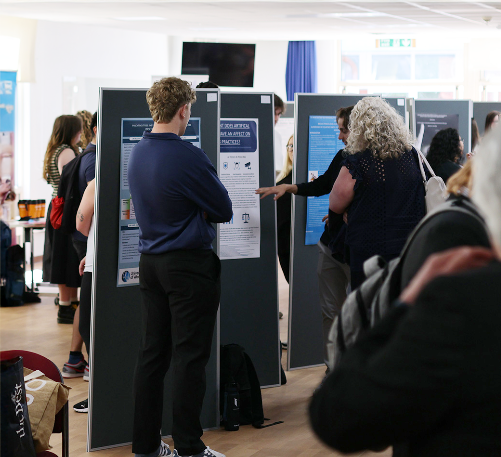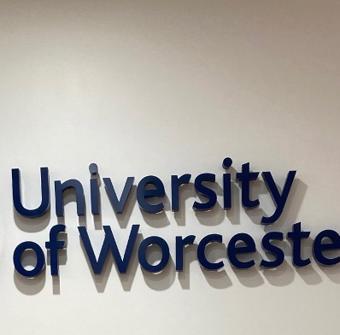With a blend of volunteering opportunities, work placements and strong employer connections, we ensure you gain practical experience alongside your academic studies. Equipping you for success in your future career.
for Criminology teaching quality
for Criminology student experience
University of the Year finalist
Recognised for our graduate success, we’re shortlisted for University of the Year in the Times Higher Education Awards 2025.
Overview
As an academic subject criminology is both theoretical and empirical with a focus on social scientific explanations for crime, victimisation and deviance. It also looks at the responses to these crimes by societies and individuals.
The inter-disciplinary nature of the subject is mirrored in the construction of our programme. Core modules in criminology are complemented by optional modules in applied criminology, sociology, forensic science, law, psychology and policing, this prompts shared learning with students from other disciplines.
You’ll be taught through a combination of interactive lectures, workshops and seminars. On this course you'll never have an exam, instead, you’ll be assessed through a mix of case reports, presentations, and consultancy projects.
Throughout your degree there are opportunities to attend extracurricular talks, research conferences, and workshops to enhance you understanding of the criminal justice sector. Organised visits to the courts, local prisons and parliament give an insight into the practicalities of working in the criminal justice system.
We believe that it is important for you to gain perspectives through different lenses, so guest speakers from a range of professions such as the Prison Service, Crown Prosecution Service (CPS) and Ministry of Justice deliver talks. You'll also hear from those who have perpetrated or experienced crimes in our society. These talks highlight different challenges, good practices and solutions for a complex system and field of study.
Our graduates work with a range of community based organisations and client groups to ensure their learning in the classroom can be applied to a criminal justice setting. Criminology as a subject is ever changing, and our course continually evolves to reflect contemporary issues in our society.
Study abroad
You can choose to study abroad for a semester or a whole year. We have fantastic connections with criminology programmes in Malta, Scandinavia, and the USA, allowing you to travel and see how different countries approach criminal justice and rehabilitation.
Why Criminology at Worcester?
Course content
Each year you will study a mix of mandatory and optional modules. This flexible course lets you explore different subjects and career paths in criminology before choosing to specialise in your final year.
We regularly review our courses to reflect the latest research and developments in the subject area, as well as feedback from students, employers and the wider sector. As a result, modules may change to ensure the course remains current and relevant.
Optional modules will run if enough students choose to study them. It is not guaranteed that all modules will be offered every year.
Optional modules
Careers
On this course you not only get to explore a range of subjects – including criminal profiling, law, victimology and cybercrime – you also get to meet people working in these areas. Guest speakers come in from the police, prison and probation services, and employers from around the country join us for our criminology careers fair.
Criminology careers
This degree could be the first step toward your career as a:
- Victim liaison officer
- Rehabilitation worker
- Police detective
- Crime analyst
- Probation officer
- Prison offender manager
- Youth justice worker
As well a range of other careers within the Crown Prosecution Service and Ministry of Defence.
Other options
You’ll gain research, analytical and presentation skills that are in high demand in a range of careers, including:
- Solicitor
- Social worker
- Policy officer in the civil service
- Intelligence officer
- Forensic scientist
- Social researcher
- Teacher
- Psychologist
At Worcester you can also specialise further with our Applied Criminology MA.
Course highlights
Teaching and assessment
Our curriculum is designed to blend theoretical study with practical application. You’ll engage in a variety of learning methods, from interactive lectures, workshops and seminars, to practical experiences in courts and prisons.
You’ll never have an exam on this course. Instead, you’ll be assessed through a mix of case reports, presentations, and consultancy projects – catering to different learning styles and preferences.
Teaching and assessment contents
You will be taught through a combination of learning and teaching methods. Lectures allow for the presentation and introduction of key topics, including both traditional and contemporary sources, which allows you to begin your learning. This is then supported by seminars that enable the discussion and development of understanding of topics covered in lectures. Subject specific skills are the focus of practical classes and workshops (for example, understanding application of theory).
The course also has a keen focus on experiential learning, as there is good evidence that this can greatly enhance the student learning experience. Therefore, methods will be used such as problem-based learning, whereby you will apply theory and content from criminology to address real world, global issues (e.g., the role of policing in knife crime, tackling crime from different lenses of victimology and offending). The role of research in the learning and teaching methods of this course will be central to all areas. Such research-informed teaching and learning will include group activities, assessments, and problem-based learning. In addition, a specialised module that focuses on work based learning will offer students an opportunity to build confidence through a portfolio of concrete experiences related to employability.
The University places emphasis on enabling students to develop the independent learning capabilities that will equip them for lifelong learning and future employment, as well as academic achievement. A mixture of independent study, teaching and academic support from Student Services and Library Services, and the Personal Academic Tutoring system enables you to reflect on progress and build up a profile of skills, achievements and experiences that will help you to flourish and be successful.
Criminology is an applied subject that sits in the heart of the community. As such, you will have the opportunity to attend careers focused activities such as a welcome week fair and an online annual careers fair. Support for such events are heavily supported by key stakeholders such as the Police Crime Commissioner/ Magistrates/Local Detectives etc. Sitting alongside the course, extra-curricular online Continued Professional Development (CPD) workshops will be offered to give you the opportunity to engage with professionals/ academics and support services in the field of criminology. Strong connections with the courts and local prisons have offered students unique learning experiences in a different environment
Graduate case studies
Entry requirements
UCAS tariff points required: 112
| Qualification | Grade |
|---|---|
| A-level | BBC |
| BTEC National Extended Diploma | DMM |
| T-level | Merit |
We do accept Access to HE Diplomas and other qualifications which may not exactly match the combinations above. Work out your estimated points with the UCAS tariff calculator.
Any questions?
If you have any questions about entry requirements, please call our Admissions Office on 01905 855111 or email admissions@worc.ac.uk.
Fees
Fees contents
UK and EU students
In 2026/27 the standard fee for full-time home and EU undergraduate students on BA/BSc/LLB degrees and FdA/FdSc degrees is £9,790 per year.
Tuition fees are reviewed annually and may increase each year for both new and continuing students.
For more details on course fees, please visit our course fees page.
International students
In 2026/27 the standard tuition fee for full-time international students enrolling on BA/BSc/LLB degrees and FdA/FdSc degrees is £17,200 per year.
Tuition fees are reviewed annually and may increase each year for both new and continuing students.
For more details on course fees, please visit our course fees page.
How to apply
How to apply contents
Applying through UCAS
UCAS is the central organisation through which applications are processed for full-time undergraduate courses in the UK.
Read our how to apply pages for more information on the application process, or if you’d like to apply for part-time study.
Criminology BA (Hons) - L311
Contact
If you have any questions, please get in touch. We're here to help you every step of the way.

Amy Johnson
Senior Lecturer in Psychology and Criminology and Programme Leader for Criminology Related Courses
a.johnson@worc.ac.ukAdmissions Office
admissions@worc.ac.uk01905 855111More to explore
Study in Dudley
We've partnered with local colleges to offer you the opportunity to study a high quality higher education course on your doorstep.

Scholarships
We award scholarships of £1,000 to eligible students in their second and third year on the basis of their academic achievement in the previous academic year.
Support for mature students
Are you over the age of 21? Discover the support we offer.













